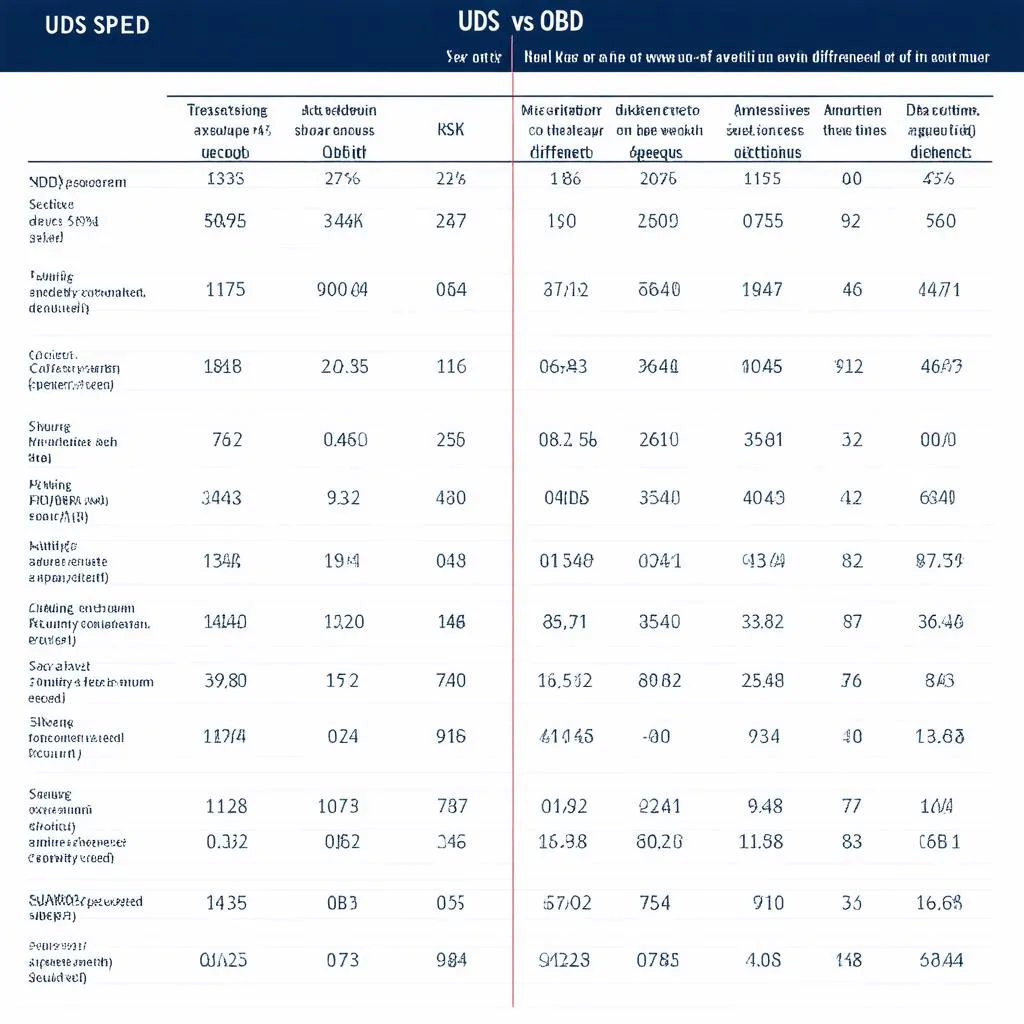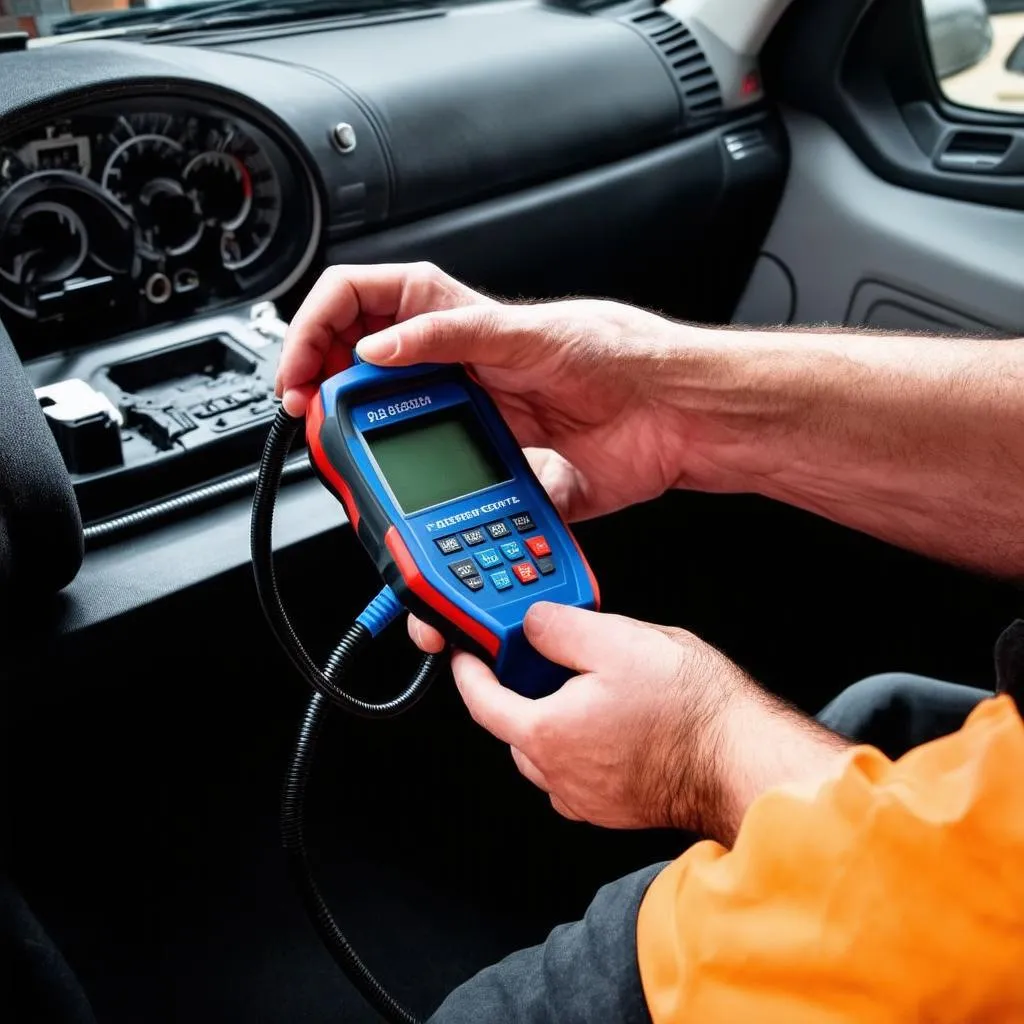“My mechanic mentioned something about UDS when diagnosing my car. Is that some new-age thing? I thought OBD was the standard!” Ever found yourself scratching your head after a trip to the mechanic? The world of car diagnostics can feel like a secret language, but fear not! Today, we’re diving into the intriguing battle of UDS vs. OBD. Buckle up and get ready to become fluent in car-speak!
Understanding the Acronyms: OBD and UDS Explained
Let’s start by breaking down these cryptic acronyms:
OBD, or On-Board Diagnostics, is essentially the standardized system your car uses to self-diagnose and communicate with the outside world. Think of it as your car’s internal doctor. It keeps tabs on your engine, emissions, and other crucial systems, alerting you (and your mechanic) if anything needs attention through those sometimes cryptic dashboard warning lights.
UDS, which stands for Unified Diagnostic Services, is a bit more complex. It’s not here to replace OBD; rather, it’s an evolved communication protocol within the OBD system, especially prominent in newer vehicles, particularly European makes.
Imagine this: OBD is like the language spoken between your car and the diagnostic tools, while UDS is a more nuanced dialect within that language. UDS allows for faster, more detailed, and more secure communication.
Why the Shift to UDS?
Think about how technology has evolved. Your first mobile phone probably couldn’t handle the data demands of streaming a movie, right? Similarly, as cars become more sophisticated with advanced electronics and computer-controlled systems, they need a more robust communication protocol. That’s where UDS steps in.
- Faster Diagnostics: Remember those agonizing minutes waiting for your mechanic to download data from your car? UDS significantly speeds up this process, saving everyone time.
- Deeper Insights: UDS allows for more comprehensive data retrieval, giving mechanics a clearer picture of your car’s health. It’s like going from a basic checkup to a full-body scan.
- Enhanced Security: As cars become more connected, cybersecurity is paramount. UDS incorporates robust security measures to protect your vehicle’s systems from potential threats.
 UDS vs OBD Chart
UDS vs OBD Chart
What Does This Mean for Car Owners?
Now, you might be wondering, “This is all very technical, but how does it affect me?”
Here’s the key takeaway: While the transition to UDS is happening behind the scenes, it ultimately translates to a better ownership experience for you. You can expect:
- Faster and More Accurate Repairs: With UDS, mechanics can pinpoint issues more efficiently, leading to faster repairs and less time spent at the shop.
- Improved Vehicle Longevity: The detailed diagnostics enabled by UDS allow for more proactive maintenance, potentially extending the life of your vehicle.
- Peace of Mind: Knowing your car is equipped with a secure and future-proof diagnostic system provides valuable peace of mind.
Frequently Asked Questions About UDS and OBD
Let’s address some common queries car owners have about these diagnostic systems:
1. Is my car OBD or UDS compliant?
Most cars manufactured after 2008 are equipped with some level of UDS capability, but the extent can vary. The best way to know for sure is to check your owner’s manual or consult with a trusted mechanic.
2. Do I need special equipment to access UDS data?
Yes, accessing and interpreting UDS data requires specialized diagnostic scanners and software that can communicate with your car’s specific systems.
3. Can I use a generic OBD scanner on a car with UDS?
While a generic OBD scanner might be able to read basic codes, it likely won’t be able to access the full range of UDS data. For comprehensive diagnostics, you’ll need a scanner specifically designed for UDS compatibility.
4. What are some popular Dealer Scanner For European Cars?
If you are looking for diagnostic tools that support European car models, you can check out some reputable brands like: AUTEL, LAUNCH, Foxwell, Autel.
 Mechanic using a diagnostic scanner
Mechanic using a diagnostic scanner
Beyond the Technical: A Touch of Automotive Zen
Now, let’s take a slight detour into the realm of automotive philosophy. Just as a healthy flow of energy is essential in our lives, the smooth communication between your car’s systems is vital for its well-being. Think of UDS as a way to enhance this flow, ensuring your car operates in harmony and reaches its full potential.
Exploring More Automotive Insights
Want to delve deeper into the fascinating world of car technology? Check out these related articles on our website:
Need Expert Assistance? We’re Just a Message Away!
Feeling overwhelmed by the intricacies of automotive diagnostics? Don’t hesitate to reach out to our team of experts on Whatsapp at +84767531508. We’re here to provide 24/7 support, helping you navigate the world of UDS, OBD, and everything in between.
Driving into the Future of Car Diagnostics
As technology continues to advance at a rapid pace, the automotive industry is right there alongside it. UDS is just one example of how diagnostics are becoming more sophisticated, paving the way for a future of smarter, safer, and more connected vehicles.
Remember, staying informed is key. By understanding the language your car speaks, you’re empowered to make informed decisions about its maintenance and ensure it stays happy and healthy for miles to come.
